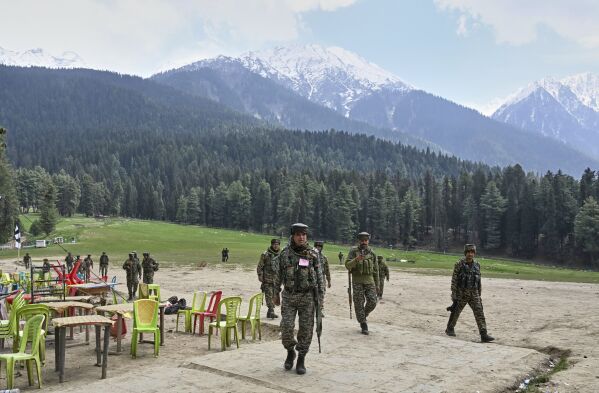The United Nations has urged India and Pakistan to exercise “maximum restraint” following the deadly Pahalgam attack in Indian Illegally Occupied Jammu and Kashmir (IIOJK). The call came as tensions escalated between the nuclear-armed neighbors, each imposing diplomatic penalties against the other.
India blamed Pakistan for the Pahalgam attack, calling it the worst act of violence against civilians in IIOJK in 25 years. Pakistan denied any link to the assault and labeled the accusations as baseless and irresponsible.
UN spokesperson Stephane Dujarric addressed the press in New York. He urged both nations to avoid actions that could worsen the already volatile situation. “We call on both governments to show restraint and resolve all issues through peaceful dialogue,” he said.
Indian Prime Minister Narendra Modi, addressing the nation on Thursday, made a strong statement. He promised that India would track down those behind the Pahalgam attack. “We will hunt them to the ends of the Earth,” he declared. Modi vowed to punish every terrorist and their sponsors.
In retaliation for the attack, India took several drastic steps. New Delhi suspended the long-standing water-sharing treaty. It shut down the main land border crossing and downgraded diplomatic ties. India also withdrew visas for Pakistani citizens.
Meanwhile, Islamabad responded with firm countermeasures. It expelled Indian diplomats and cancelled visas for Indian nationals, except Sikh pilgrims. Pakistan also shut its side of the main border crossing. A statement from the Prime Minister’s Office warned that any threat to Pakistan’s sovereignty would face “firm reciprocal measures in all domains.”
The Pahalgam attack has also triggered military activity. India’s air force and navy conducted exercises on Thursday. Indian police announced a reward of two million rupees for information leading to each suspect’s arrest.
Experts say a military response from India could be expected soon. Some suggest it might happen in days, while others believe it may take weeks. The Pahalgam attack has shifted the pattern of violence in the region. Unlike previous strikes on security forces, this assault targeted civilians.
The attackers struck as tourists enjoyed scenic mountain views. Gunmen suddenly emerged from the forest and opened fire on the crowd using automatic rifles. Twenty-six people lost their lives. Only one of the victims was not Indian.
In 2019, a similar attack led to Indian airstrikes in Pakistan after 41 Indian soldiers were killed. That crisis nearly pushed both countries to full-scale war.
Pakistan has also warned India against halting the flow of Indus River water, calling it an “act of war.” Prime Minister Modi has vowed to reduce every terrorist hideout to “dust.”
Following the Pahalgam attack, reports of harassment against Kashmiri students have surfaced across Indian universities. Tensions remain high, and the situation continues to unfold rapidly.


